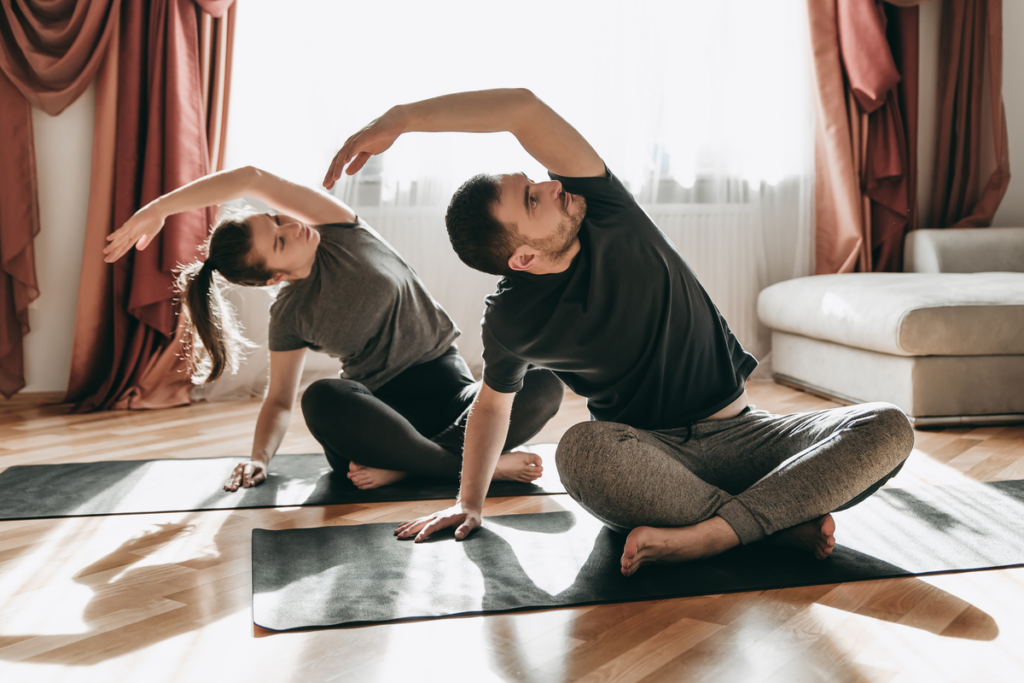The Importance of Personal Space in a Relationship


Written and verified by the psychologist Sharon Laura Capeluto
Wanting to share everything with time. Waiting anxiously to see them. Feeling that there’s nothing as good or powerful as their presence and that they’re the only person who can make you feel good. Staring into their eyes and wishing that time would stop. These kinds of feelings don’t last forever. However, that’s a good thing. Imagine living your whole life taken over by such intense and overpowering feelings.
In reality, once the infatuation stage of a relationship is over, while some of the above may remain, it won’t be of the same intensity. In fact, spending time on your own without your partner becomes as important as sharing quality moments with them.
Yours and theirs
Naturally, it’s nice to share certain interests with your partner. Indeed, having tastes in common is probably a fundamental ingredient when establishing a relationship. After all, what could be more beautiful than sharing a hobby with the one you love?
Perhaps you both enjoy yoga or video games? Maybe you both love classical music. This is great. However, bear in mind that not everything needs to be shared.
In fact, it isn’t necessary or healthy to share all the activities you do throughout the day. You’re individuals and you surely both have certain interests that the other doesn’t share.
Maybe you like soccer and your partner doesn’t. That doesn’t mean you have to give it up. Keep doing it, so you can tell them all about it later. Because a healthy couple needs three clearly defined spaces to work harmoniously: the one they create together, and their two individual spaces.
“But, in addition, no matter how many things they have in common, each member of the couple is a different person and has their own history, their own character, their nuances regarding interests, values, aspirations, and, logically, a family of origin with its particular functioning and reality. In short, given the variation among people it is impossible to find coincidence in everything, and it probably would not be desirable either”.
-Jorge Barraca Mairal-

You need your space
Although your partner may have an influence on you, your emotional well-being is your responsibility. Furthermore, it’s a responsibility that you’re not assuming intelligently if you’re too dependent on them.
Devoting time and energy to activities or spaces that exclude your partner promotes the development of healthy self-esteem. In turn, this helps you to relate positively, both with the people around you and with yourself.
Balance is the key. Sharing with others doesn’t mean neglecting yourself, nor should prioritizing someone else weaken the bonds between you and your partner. Quite the contrary, maintaining a good balance when organizing your own space means that you feel better in both areas.
In addition, the fact that your partner is happy without your presence makes you feel happy and free, as their well-being isn’t based on your existence, but goes beyond. In other words, you accompany each other by choice, not by necessity.
Limited time, quality time
Anything that’s unlimited loses its value. There’s no novelty or excitement. In fact, there’s a phenomenon called hedonic adaptation that refers to the fact that human beings adapt easily to both the positive and the negative. This explains how your satisfaction quickly fades after achieving a goal.
Imagine that, for a year, you could only eat your favorite dish. This might sound wonderful. However, after a few days, you’d stop feeling that same enjoyment as when you tried it for the first time.
Unlimited access to things makes them devalue quickly. The same happens with sharing time as a couple. If it’s unrestricted, it loses value. Therefore, it’s hardly surprising that couples who are together every day often end up feeling overwhelmed, as the excess of closeness suffocates their relationship.

Is it possible to have personal space in the same home?
The answer is yes. Although guaranteeing your own space when you live together can be more complex than if you each had your own place, it’s not impossible. In fact, as well as having your own activities outside the home, you can have places in your home where you can enjoy moments of solitude without being invaded.
Maybe you’ve heard about the new trend of sleeping in separate beds. This is a custom that’s rapidly gaining popularity in the world of relationships. As a matter of fact, evidence suggests that it benefits the comprehensive well-being of each partner, generating a more harmonious coexistence and increasing sexual desire.
Finally, communication and trust, as well as respect for yourself and your partner are the most important pillars for a successful and healthy relationship.
Wanting to share everything with time. Waiting anxiously to see them. Feeling that there’s nothing as good or powerful as their presence and that they’re the only person who can make you feel good. Staring into their eyes and wishing that time would stop. These kinds of feelings don’t last forever. However, that’s a good thing. Imagine living your whole life taken over by such intense and overpowering feelings.
In reality, once the infatuation stage of a relationship is over, while some of the above may remain, it won’t be of the same intensity. In fact, spending time on your own without your partner becomes as important as sharing quality moments with them.
Yours and theirs
Naturally, it’s nice to share certain interests with your partner. Indeed, having tastes in common is probably a fundamental ingredient when establishing a relationship. After all, what could be more beautiful than sharing a hobby with the one you love?
Perhaps you both enjoy yoga or video games? Maybe you both love classical music. This is great. However, bear in mind that not everything needs to be shared.
In fact, it isn’t necessary or healthy to share all the activities you do throughout the day. You’re individuals and you surely both have certain interests that the other doesn’t share.
Maybe you like soccer and your partner doesn’t. That doesn’t mean you have to give it up. Keep doing it, so you can tell them all about it later. Because a healthy couple needs three clearly defined spaces to work harmoniously: the one they create together, and their two individual spaces.
“But, in addition, no matter how many things they have in common, each member of the couple is a different person and has their own history, their own character, their nuances regarding interests, values, aspirations, and, logically, a family of origin with its particular functioning and reality. In short, given the variation among people it is impossible to find coincidence in everything, and it probably would not be desirable either”.
-Jorge Barraca Mairal-

You need your space
Although your partner may have an influence on you, your emotional well-being is your responsibility. Furthermore, it’s a responsibility that you’re not assuming intelligently if you’re too dependent on them.
Devoting time and energy to activities or spaces that exclude your partner promotes the development of healthy self-esteem. In turn, this helps you to relate positively, both with the people around you and with yourself.
Balance is the key. Sharing with others doesn’t mean neglecting yourself, nor should prioritizing someone else weaken the bonds between you and your partner. Quite the contrary, maintaining a good balance when organizing your own space means that you feel better in both areas.
In addition, the fact that your partner is happy without your presence makes you feel happy and free, as their well-being isn’t based on your existence, but goes beyond. In other words, you accompany each other by choice, not by necessity.
Limited time, quality time
Anything that’s unlimited loses its value. There’s no novelty or excitement. In fact, there’s a phenomenon called hedonic adaptation that refers to the fact that human beings adapt easily to both the positive and the negative. This explains how your satisfaction quickly fades after achieving a goal.
Imagine that, for a year, you could only eat your favorite dish. This might sound wonderful. However, after a few days, you’d stop feeling that same enjoyment as when you tried it for the first time.
Unlimited access to things makes them devalue quickly. The same happens with sharing time as a couple. If it’s unrestricted, it loses value. Therefore, it’s hardly surprising that couples who are together every day often end up feeling overwhelmed, as the excess of closeness suffocates their relationship.

Is it possible to have personal space in the same home?
The answer is yes. Although guaranteeing your own space when you live together can be more complex than if you each had your own place, it’s not impossible. In fact, as well as having your own activities outside the home, you can have places in your home where you can enjoy moments of solitude without being invaded.
Maybe you’ve heard about the new trend of sleeping in separate beds. This is a custom that’s rapidly gaining popularity in the world of relationships. As a matter of fact, evidence suggests that it benefits the comprehensive well-being of each partner, generating a more harmonious coexistence and increasing sexual desire.
Finally, communication and trust, as well as respect for yourself and your partner are the most important pillars for a successful and healthy relationship.
All cited sources were thoroughly reviewed by our team to ensure their quality, reliability, currency, and validity. The bibliography of this article was considered reliable and of academic or scientific accuracy.
- Aguilar, C. E. V., & Paladinez, J. L. J. (2020). Desgaste emocional en la convivencia afectiva de pareja. ACADEMO Revista de Investigación en Ciencias Sociales y Humanidades, 7(1), 58-66.
- Barraca Marial, J. (2016). “Terapia integral de pareja. Una intervención para superar las diferencias irreconciliables”. Editorial Síntesis, S.A.; Edición 1ª ed.
This text is provided for informational purposes only and does not replace consultation with a professional. If in doubt, consult your specialist.







